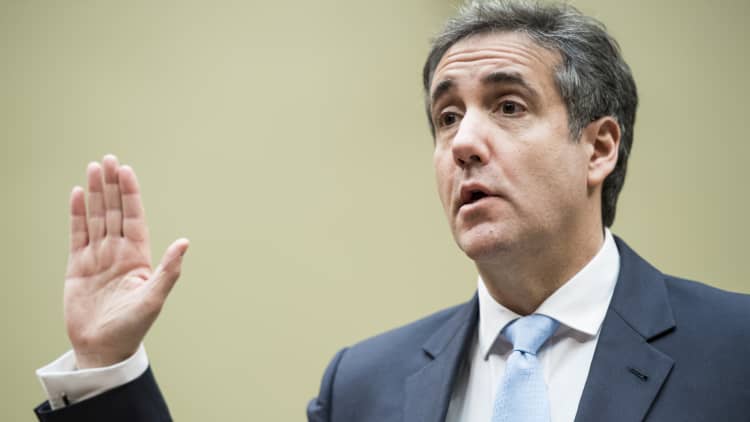Investigators asked for court permission to use Michael Cohen's Face ID and fingerprints to access Apple devices belonging to the president's former fixer and personal attorney, newly released warrant documents show.
Apple has historically resisted providing a backdoor to law enforcement, including in the investigation of the 2015 shooting massacre in San Bernardino, California, when the FBI asked the company to help it unlock an iPhone belonging to the shooter.
At the time, Apple CEO Tim Cook argued that if it were required to unlock the suspect's phone, the government "would have the power to reach into anyone's device to capture their data."
The request in Cohen's case differs, however, in that it would not require Apple to step in for authorities to access the contents of his devices. Apple declined to comment on the warrant documents.
In a sworn affidavit supporting a warrant application, an FBI agent requested "that the Court authorize law enforcement to press the fingers (including thumbs) of Cohen to the Touch ID sensors of the Subject Devices, or hold the Subject Devices in front of Cohen's face, for the purpose of attempting to unlock the Subject Devices via Touch ID or Face ID in order to search the contents as authorized by this warrant."
The warrants were used for executing FBI raids on Cohen's home and office in April. Cohen later pleaded guilty to breaking campaign finance law through his involvement in hush-money payments made to two women ahead of the 2016 presidential election, both of whom claim they had affairs with Trump years earlier.
A judge authorized warrants of Cohen's apartment and office that included his electronic devices as well as, "Any items or records needed to access the data stored on any seized or copied computer devices or storage media."
Rulings have varied on the issue of whether suspects can be compelled to provide their biometric data to access their devices. In January, a federal judge rejected a warrant request in California that sought people at the scene of the search provide their fingerprints and faces to access their devices, AppleInsider reported. The judge reportedly said the request "runs afoul of the Fourth and Fifth Amendments." In 2016, however, a Los Angeles court granted a warrant to the FBI to unlock an iPhone with a suspect's fingerprints, according to AppleInsider.
Watch: Michael Cohen just testified before Congress. Here are the key moments



